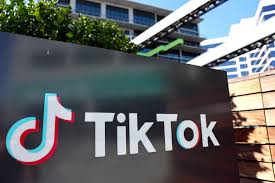In June 2024, TikTok announced significant layoffs affecting its African team as part of a broader strategy to streamline operations globally. The layoffs come after the company, owned by ByteDance, had already reduced some positions in March of the same year. Employees were officially informed about the upcoming job cuts in May.

The recent layoffs impacted various departments within the African team, including content operations, marketing, and trust and safety. According to sources familiar with the situation, more layoffs are anticipated in the third quarter of 2024, indicating that the restructuring process may continue.
While the exact number of affected employees remains unclear, reports suggest that over half of the African team, which is based in South Africa and Nigeria, lost their jobs. One insider mentioned that the African team consisted of at least 100 individuals, highlighting the scale of the cuts.
TikTok has chosen not to comment on the specifics of the layoffs, leaving many questions unanswered. Some media outlets have speculated that the job cuts may be linked to the company’s regulatory challenges in the United States. Recently, President Joe Biden signed a law that requires ByteDance to sell TikTok within nine months or face a ban in the U.S.
However, a TikTok executive, speaking on condition of anonymity, denied that the layoffs were a direct response to these regulatory pressures. “The changes are not a reaction to anything,” the executive stated. “It is a function of assessing the business on an ongoing basis and making necessary changes.”
This round of layoffs marks one of TikTok’s most significant workforce reductions to date. Typically, the company opts for smaller reorganizations rather than large-scale cuts. TikTok is not the only tech giant making such moves; other companies, including Meta and Microsoft, have also downsized their African operations, although they maintain that they are still committed to investing in the region.
The layoffs come at a time when many tech companies are reevaluating their workforce and operational strategies in response to changing market conditions and regulatory landscapes. As the industry adjusts, employees and stakeholders are closely watching how these changes will affect the future of social media and digital content in Africa.
TikTok’s layoffs in Africa reflect a broader trend in the tech industry, where companies are adjusting to new economic realities and regulatory challenges. While the company insists that these changes are part of a routine assessment of its business needs, the impact on employees and the overall market remains significant. As TikTok navigates this transition, the future of its operations in Africa hangs in the balance.



